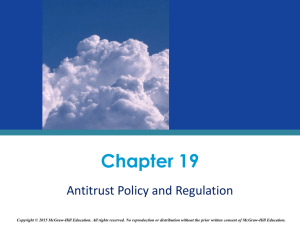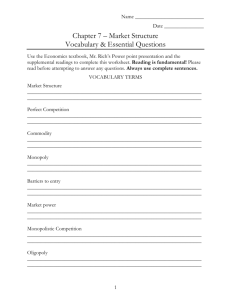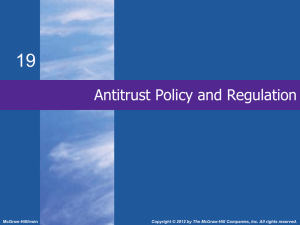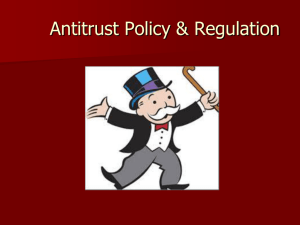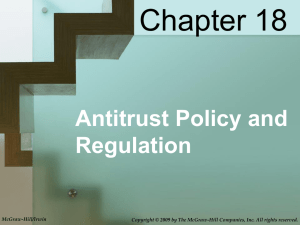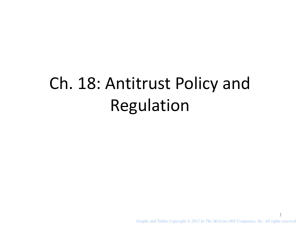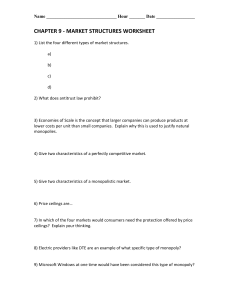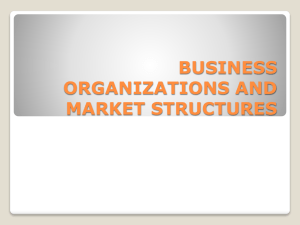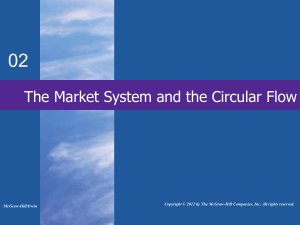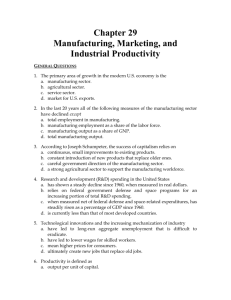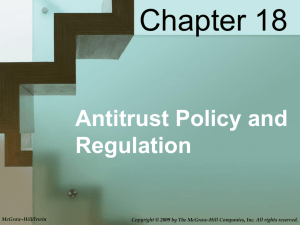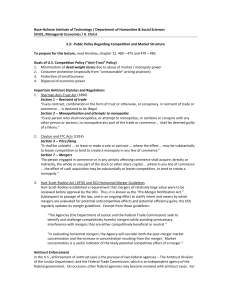Antitrust Policy and Regulation Antitrust Laws • The purpose - Jb-hdnp
advertisement
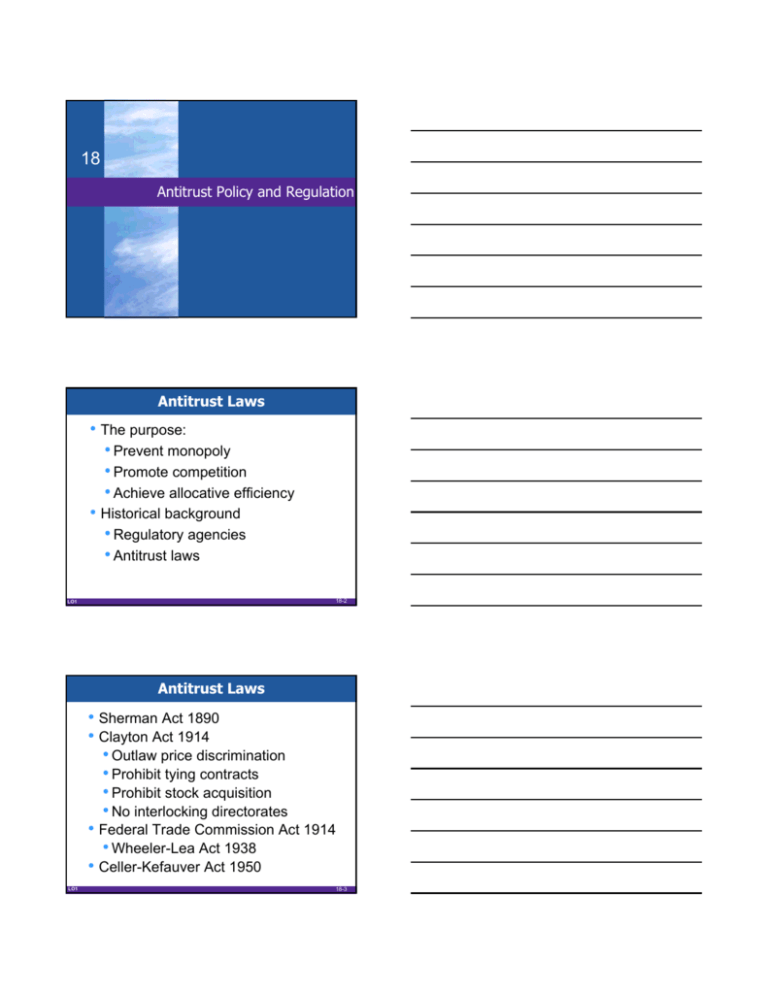
18 Antitrust Policy and Regulation Antitrust Laws • The purpose: • Prevent monopoly • Promote competition • Achieve allocative efficiency • Historical background • Regulatory agencies • Antitrust laws 18-2 LO1 Antitrust Laws • Sherman Act 1890 • Clayton Act 1914 • Outlaw price discrimination • Prohibit tying contracts • Prohibit stock acquisition • No interlocking directorates • Federal Trade Commission Act 1914 • Wheeler-Lea Act 1938 • Celler-Kefauver Act 1950 LO1 18-3 Antitrust Policy • Issues of interpretation • Monopoly behavior or structure • 1911 Standard Oil Case • 1920 U.S. Steel Case • 1945 Alcoa Case • The relevant market • 1956 DuPont Cellophane Case • Issues of enforcement 18-4 LO2 Effectiveness of Antitrust Laws • Monopoly • AT&T • Microsoft Case • Mergers • Horizontal merger • Vertical merger • Conglomerate merger LO2 18-5 Mergers Automobiles Blue Jeans Conglomerate Merger Autos A T B U C V Glass Horizontal Merger LO2 D E F W X Y Z Blue Jeans Denim Fabric Vertical Merger 18-6 Mergers • Merger guidelines • The Herfindahl Index • Price fixing • Price discrimination • Tying contracts 18-7 LO2 Industrial Regulation • Natural monopolies • Economies of scale • Public utilities • Electricity, water, gas, phone • Solutions for better outcomes • Public ownership • Public regulation • Public interest theory of regulation 18-8 LO3 Industrial Regulation Commission (Year Established) Jurisdiction Federal Energy Regulatory Commission (1930)* Electricity, gas, gas pipelines, oil pipelines, water-powered sites Federal Communications Commission (1934) Telephones, television, cable television, radio, telegraph, CB radios, ham operators State public utility commissions (various years) Electricity, gas telephones *Originally called the Federal Power Commission, renamed in 1977 LO3 18-9 Problems with Industrial Regulation • Regulators establish rates to give • • • • natural monopoly “fair return” No incentive to reduce cost X-inefficiency Perpetuate monopoly • Conditions of natural monopoly can end Legal Cartel Theory 18-10 LO3 Deregulation • Began in the 1970s • Has produced large net benefits for • consumers and society Industries deregulated include: • Airlines • Railroads • Telecommunications • Electricity 18-11 LO3 Social Regulation • Concerned with the conditions under • • • LO4 which goods and services are produced Impact of production on society Physical qualities of goods Applied “across the board” to all industries 18-12 Social Regulation Commission (Year Established) Jurisdiction Food and Drug Administration (1906) Safety and effectiveness of food, drugs, and cosmetics Equal Employment Opportunity Commission (1964) Hiring, promotion, and discharge of workers Occupational Safety and Health Administration (1972) Industrial health and safety Environment Protection Agency (1972) Air, water, and noise pollution Consumer Product Safety Commission (1972) Safety of consumer products 18-13 LO4 Social Regulation • Optimal level of social regulation • In support of social regulation • Criticisms of social regulation • Two reminders • There is no free lunch • Less government is not always better than more 18-14 LO4 United States vs. Microsoft • Charged in May 1998 under the • • • • • Sherman Act Accused of having a “Windows” monopoly District court findings: • Used anticompetitive means District court remedy Appeals court ruling Final settlement 18-15
